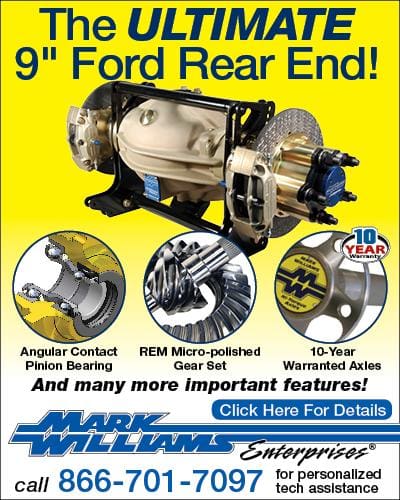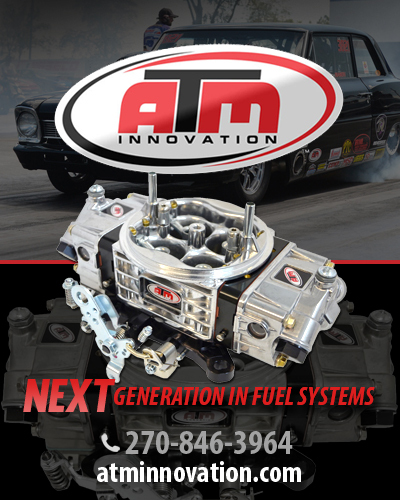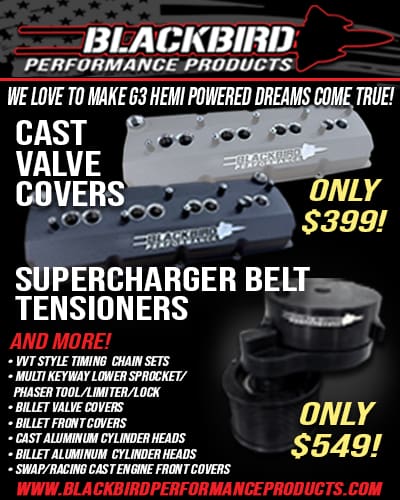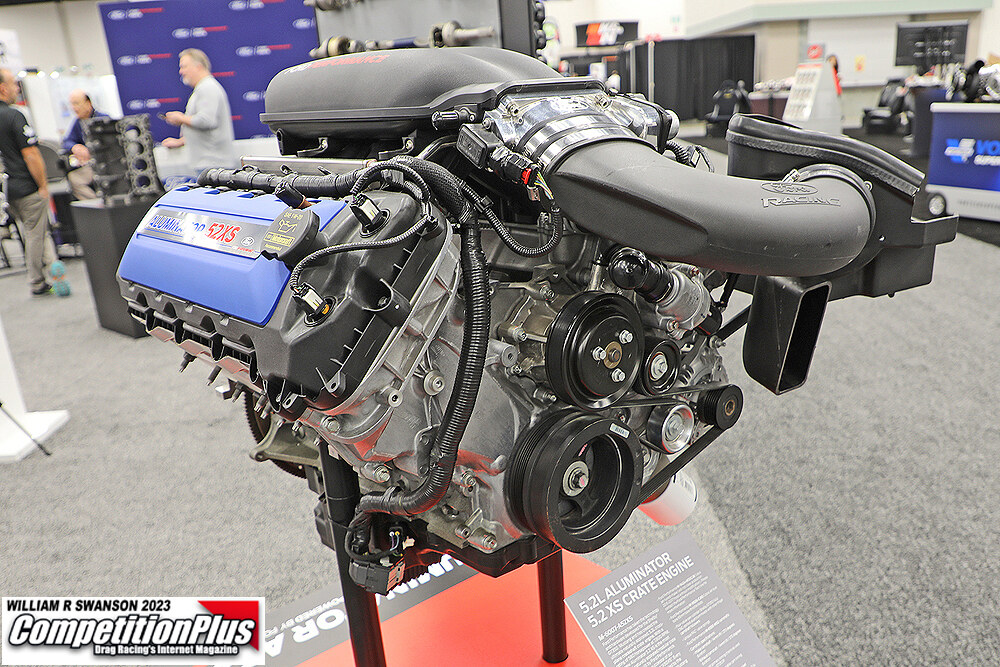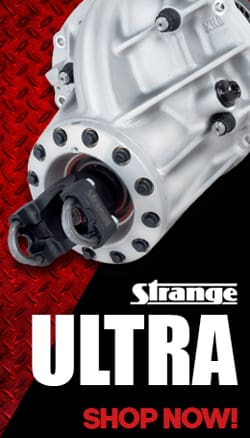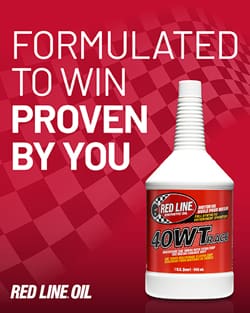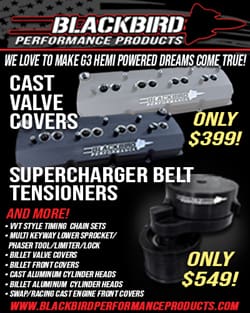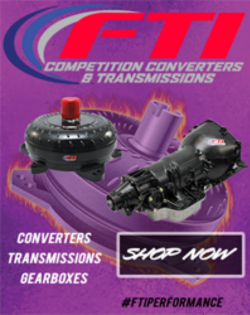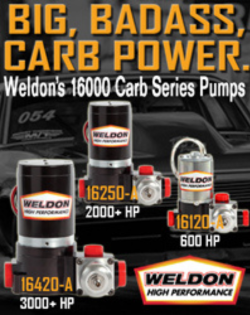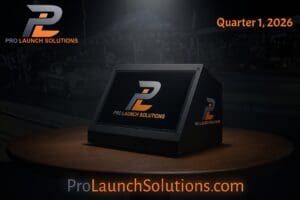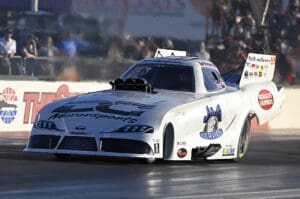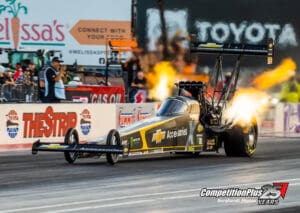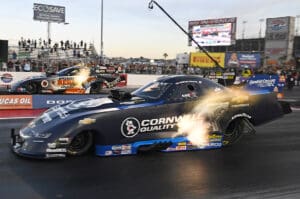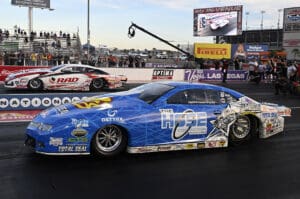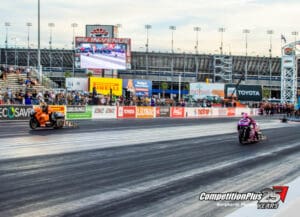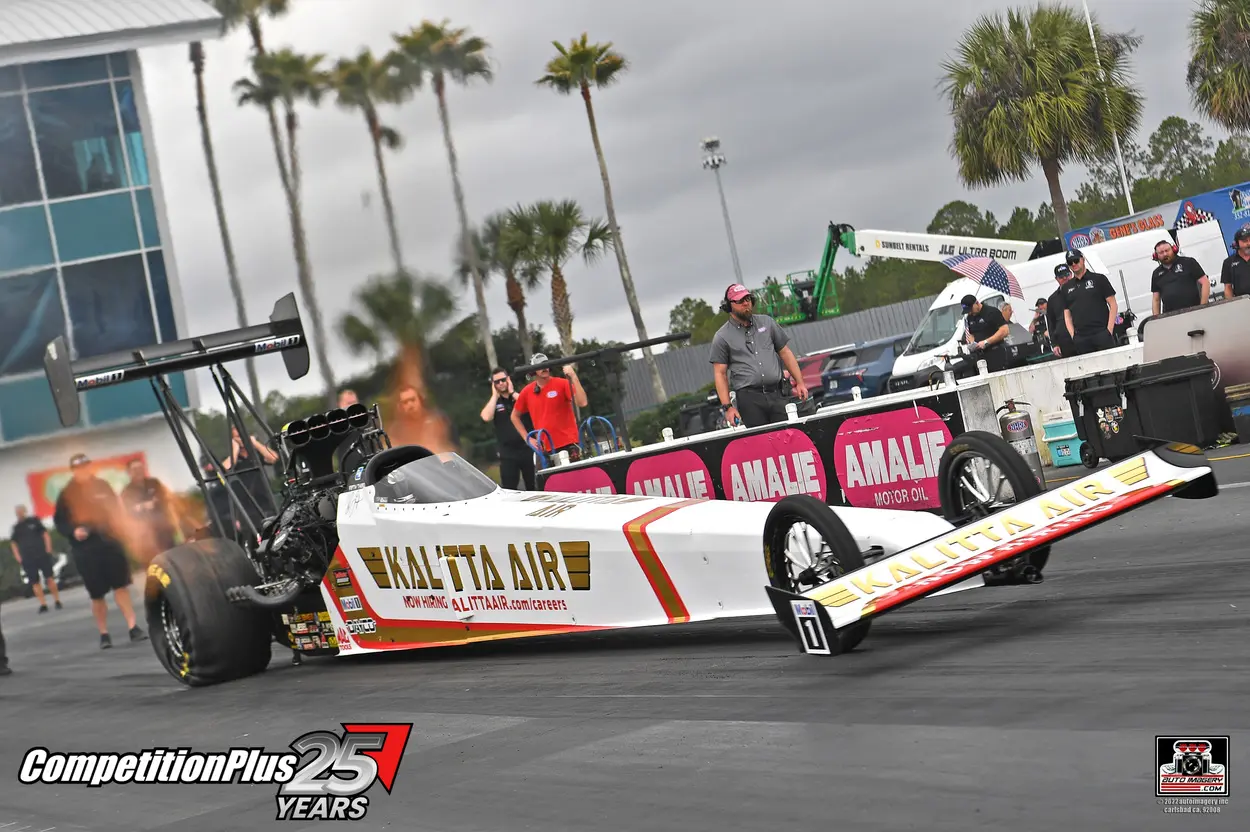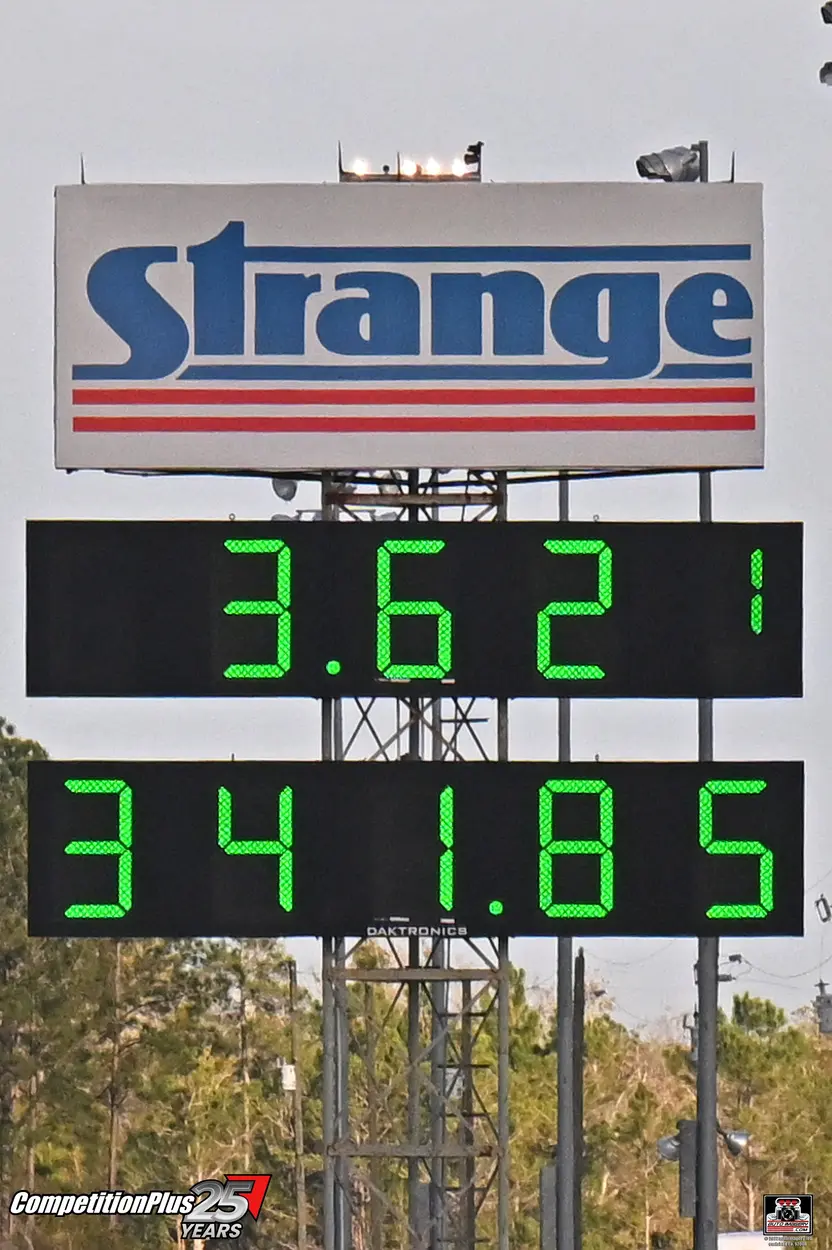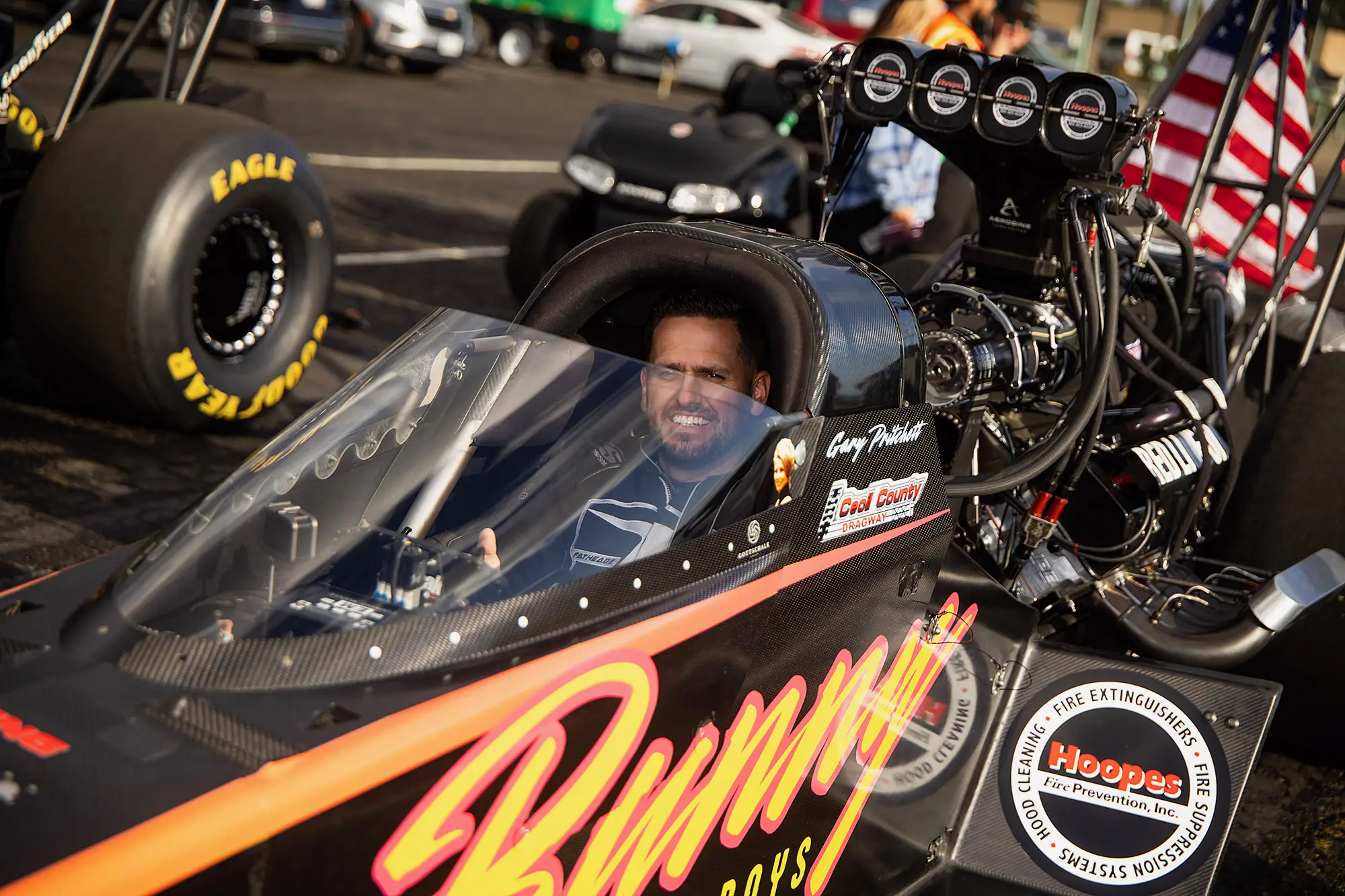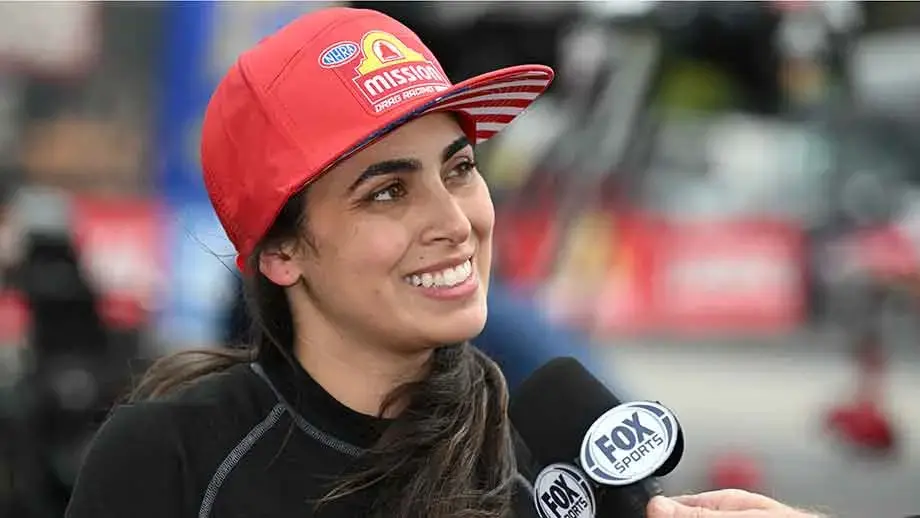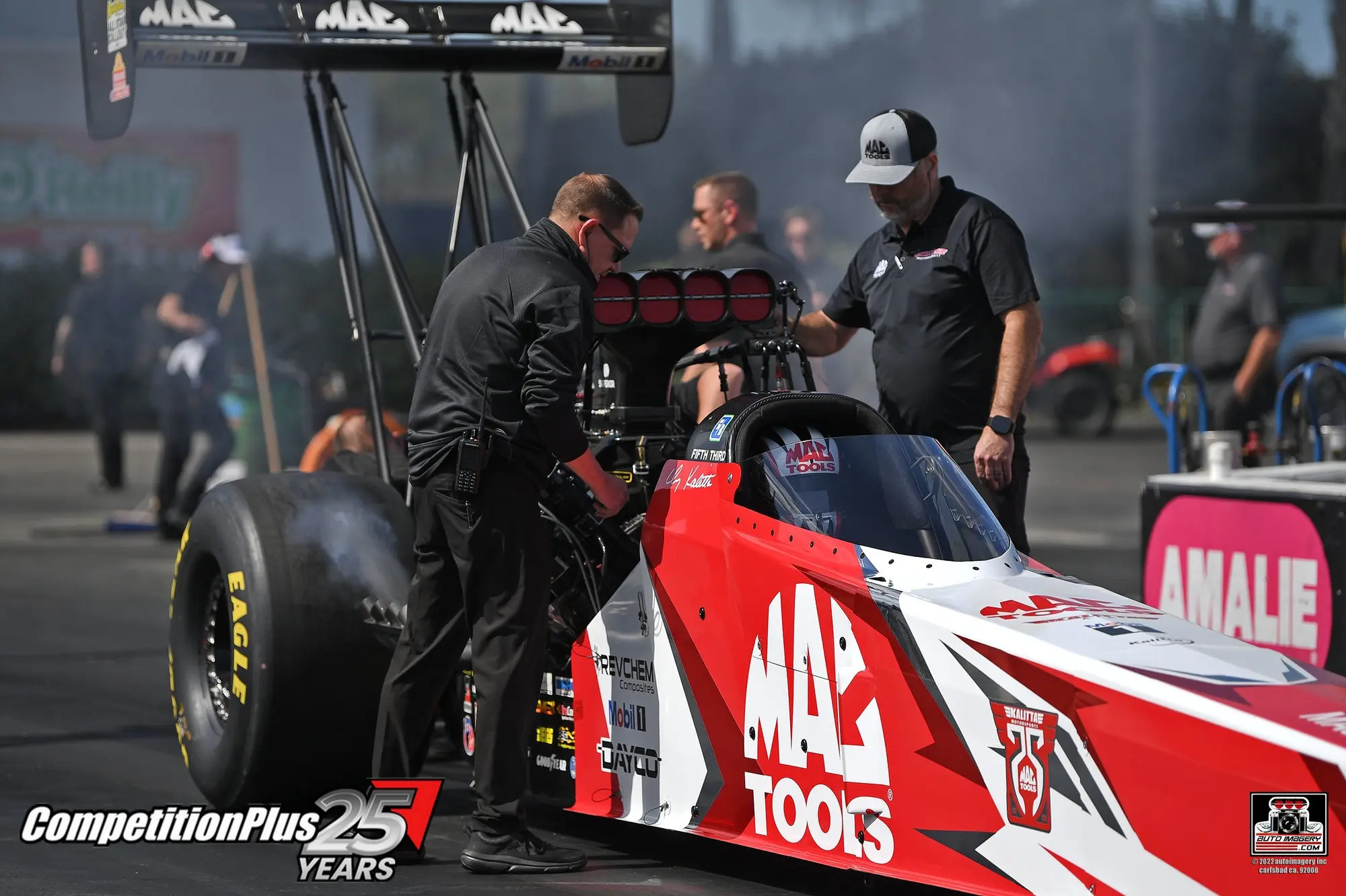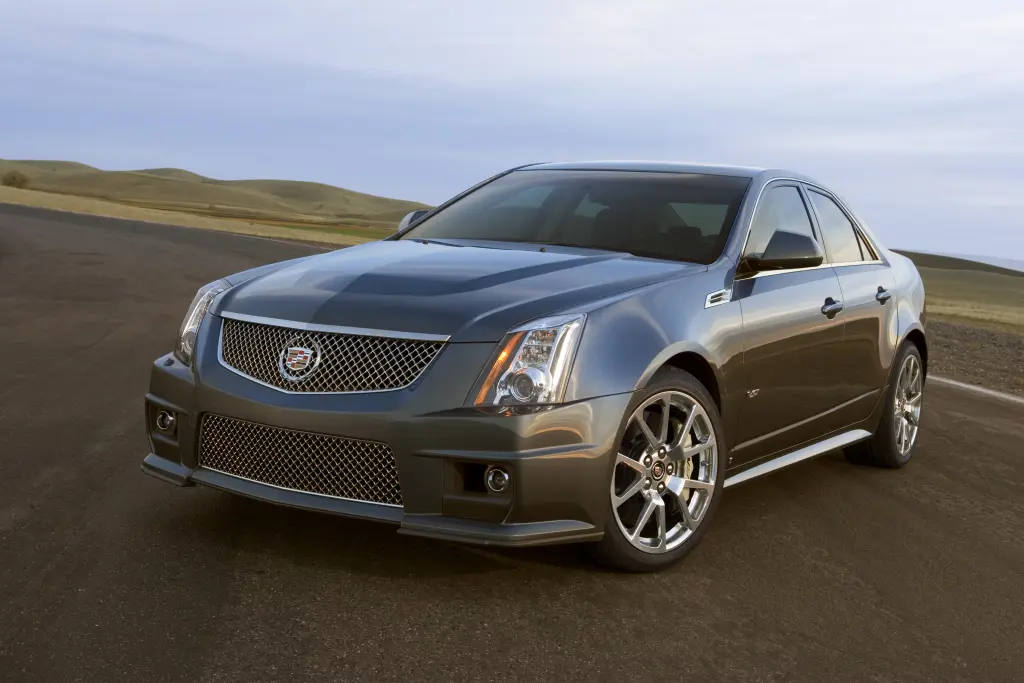 With each passing week, the rumors grow larger and in further detail. Mike Dunn has heard them all.
With each passing week, the rumors grow larger and in further detail. Mike Dunn has heard them all.
The former nitro racer turned television analyst and now IHRA President has a grand vision for the IHRA. He’s suspended the professional show until 2018, and will head into this season with a new television package and a sportsman-only program aimed at rebuiding the organization from the ground up.
In this exclusive interview, Dunn fields the questions many of our readers have. – Editor
BOBBY BENNETT (BB): Well Mike, I guess the reports of the IHRA’s demise are greatly exaggerated.
MIKE DUNN (MD) – Yeah, you could say that. It was interesting. I mean, there were some issues. And rumors are kind of based on the facts as you know them. Like anything else, rumors usually don’t have all the facts. We got some things worked out, and towards the last month, it was kind of going crazy, and I thought well, let’s just let it go. It may not help us when we make the announcement on the TV side. It will be a little bit more of a surprise. It worked a little bit, you know.
BB – So tell me about your ESPN partnership. Why should fans be excited about your ESPN3 announcement?
MD – Well, because it covers Sportsman racing. And obviously Sportsman racing, it’s not going to get the big numbers, but we have a pretty good Sportsman program, I believe. And it’s just enhanced them. I mean, it’s not going to be the big production. Mark Walter of J-Angel Productions is going to produce it like he has in the past when it was aired on MotorManiaTV.com.
The ESPN aspect of it is basically going to give it a little bit better look because of the requirements for the uploading and streaming is going to be larger so we had to spend a little bit of money on that. So the picture you’re going to see is going to be a little bit clearer and hopefully won’t buffer as much. And we’re looking at a small production value to it obviously. So we found out that Sportsman racers, they just like to race cars down the track. They don’t really care about Mike Dunn up there shooting his mouth off and talking all the time.
So, I’ll be there for the first couple shows, just to kind of introduce the thing, and just have the PA announcer call the races. The one thing we had last year, we had some down time. So we may go in there and we’re going to do some little things to fill the down time. Just build that audience and hopefully get the Sportsman racers excited about being on ESPN3. We’re going to show all the runs. I know NHRA came out with their Sportsman schedule right after we announced our deal. We’re not going to just show the final rounds, we’re going to show the whole race once eliminations start.
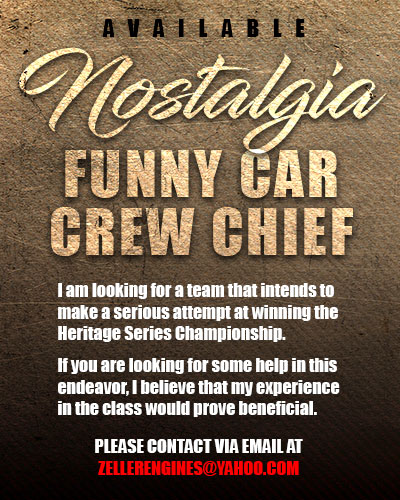 BB – Is this a stepping stone to an eventual return of the IHRA to broadcast television?
BB – Is this a stepping stone to an eventual return of the IHRA to broadcast television?
MD – Absolutely. We are in a ten-race deal that we are putting together for next year for the pro show. So that’s the whole intent. We’re working on the details on that now. And that was the plan last year, we just couldn’t get the deal put together in time. That’s why we decided to postpone the pro show. A lot of people said, Well why don’t you just run what you had?”
Well, we were losing money. And to be honest with you, I went out to those races and I thought it was a good show. But we couldn’t get people to come out because I believe, in my opinion, the IHRA had gone through so many different changes and variations of what the show actually was, that even though the racing was very good, I like the class structure we had with the Nostalgia Funny Cars, back to motorcycles, Mountain Motor Pro Stock put on a hell of a show.
Pro Mod, we needed some work there, we had to do something there. But, the last race in Martin, Michigan, I told my VP of Operations, Skooter Peaco,”You know, this show isn’t bad.”
I said, “Well, we need to tweak it here and there, speed the thing up a little bit, and stick to the plan to bring Top Fuel back with a TV package because it doesn’t work if we don’t have some television.”
And try to attract a few stars to bring the people back to take another look at the IHRA and get them to come out and see what the rest of the classes are running, and how good that racing is.”
And then as the TV show goes, start promoting those lower classes after you hit the Top Fuel side initially. Show what those other classes can do. That’s the plan. That’s been my recommendation and I want to stick to that. We’ll see how it ends up. I don’t know. The corporate world is one thing, but dealing with Wall Street people, that’s another thing. We’ll see how it goes out. It’s a little bit different thinking, but we’re going to keep on plugging. I’m not out yet.
BB – So I’m a middle-to-lower tier Top Fuel racer in the NHRA. What’s your sales pitch to get me to come over and become a star in the IHRA?
MD – The sales pitch there to the middle to lower tier – we’re going to have a good purse structure. At least that’s what we are planning on doing. You’re going to get TV exposure. So you’re going to have to look at it and evaluate if it’s going to be something to sell to your sponsors to try and get them on track to come run the IHRA side. You know, that’s going to be a personal decision. What’s going to have to happen is we are going to have to put something together with a pro show – here’s what we’re going to offer, here’s our schedule, here’s our TV package, this is what you’re going to have. It’s not going to be anything, like on the NHRA side they’ve got a ton of programming, they’ve got great programming. I’ll give them that on the production side of things. But, as far as programming, they’ve got it. So, everybody’s going to have to evaluate it. We’re going to try to cut the cost down to run over there. We’re not going to run, we’re looking at running two days, possibly even one day events to try to cut the runs down, the amount of runs that they have to make. And with a little bit better pay rate we’re hoping. That’s what we’re trying to put together. They’re going to have to evaluate it and see what it looks like and see if they want to come run with the IHRA.
BB – You know, you mentioned several variations that the IHRA went through, from the Larry Carrier days, to the Prolong era, to the Mike Dunn tenure here. What’s it going to take to fix that broken reputation?
MD – We have to put, and I’ve been stressing this, we have to have a good show on the track. The one thing I did learn from doing TV for 14 years is you can’t take television and make something bad look good. You can make it look less bad but it still has to be a good show on the racetrack. So the focus is you have to put a good show on the racetrack, one that the fans want to come to see. One that they will leave thinking, “Hey that was pretty good. I’ll come back and watch this again.”
And then we have to do a good job of covering that show on TV and get that consistency. The races that do well are all the established events, you know, Bobby, that have been around forever, the US Nationals, the Winternationals. All these events have been around for so many years and are established are the ones that do the best. So, we’ve got to get back to that point and that takes time. But if we give them a good show and it’s on TV and people can see it, and they say, “OK, that looks pretty good. We’ll come out and watch it,” and give them a good experience, and that’s what it’s going to take and be consistent in doing that. It’s not an easy deal. I should say it’s easier said than done. I think it’s a simple plan. Just give the people a good show, and make sure you deliver on that consistently and you’ll get people to come back. It’s easier to say that then to actually make it happen.
BB – Now, a lot of original ideas were created under the IHRA banner. Pro Mod namely being one of them. Does it bother you that that’s a class that you’ve got to work on and this is where it was actually born was the IHRA?
MD – Yeah, I think it says a lot about that class in general. Because, when I got here to be honest with you, I thought Pro Mod would be an easy fix. I knew we were going to have to do something with Pro Mod when I got here because when you look at the structure from the previous year, and how the championship was won, I thought, “This needs work.”
And then when I looked at it I thought, ‘Alright, well we weren’t really paying that much, we just got to change the purse structure, and maybe just tweak the rules, and we can get them to come back’. Well, I was wrong about that. You know, Pro Mod is so different. There’s a lot of them out there, but the problem is you’ve got your eighth-mile guy, you’ve got the quarter-mile guys, a lot of them are just regional racers that don’t want to travel. So, it wasn’t an easy fix by any means. So, that’s one thing we’ve got to evaluate. The whole thing is, back in the ’90’s you could run a Pro Mod show, especially in the Southeast and fill the stands with it. I don’t think that’s really the case anymore. Now, it’s a good show, I think it’s a great show. But it’s almost in addition to the other parts of your show. You know, it’s not a standalone deal. I will tell you, the one that did surprise me too was the Mountain Motor Pro Stock. I thought that was going to be an issue that we weren’t going to be able to get full fields and I was concerned about the quality of the show. And let me tell you something, they put on a hell of a show. I mean, they raced right down to the wire. I mean they went fast. We had the semi-finals in Maryland were they had four cars all ran 6.29 or 6.30 side-by-side. I can’t say enough about the show that they put on. That’s where the IHRA has been with the Mountain Motor Pro Stock. The problem with them though is there’s not that many cars out there. You’re probably talking two dozen, and some of them are eighth-mile cars, and others are quarter-mile. We had a group of about twelve where we were able to get full fields in all of our events, we only ran five [events]. But at least they all showed up and put on a hell of a show. I would love to have them back again to run. But, we’ll see how it all plays out.
BB – Now, I guess looking at it from a Sportsman racer, and of course you’re going to get your trial by fire this year being the President of a Sportsman organization, how can Mike Dunn that was in the ESPN booth and the Top Fuel Dragster and Funny Car, never raced Sportsman, how can he relate to a 9.90 or 10.90 racer? How do you relate to those guys?
MD – Good drag racers are good drag racers no matter how quick and fast they go. It doesn’t matter what class. We all respect other racers in the Sportsman categories that go out and win all the time. It’s no different than me in my retirement, I’ve started doing some mountain biking. When you’re out riding with the guys, and I did run a couple of races, but mostly I just go out and have a good time. But we’re competitive. We start hammering down these sections of trail, and you know, when you leave everything or leave nothing on the table, and you run that thing out and hit the trail as fast as you could go, and nailed it perfect, it’s the same as when you go out and make a perfect run in a Fuel car and get the win light. The feeling’s the same, it’s the speed is just a relative portion as far as to gauge how fast you’re going and make the fans go, “Wow, that was pretty cool, 303 miles per hour.”
But, to me just going out there and winning and doing everything right and being perfect, which is what you have to do in Sportsman racing all the time. Our guys make it look easy, but it’s not easy. And I’ve always had respect for Sportsman racers even though I never did it. Remember back in the day when Wally Parks wanted to sell the NHRA and divide the Pro section and make them an LLC, and then keep the Sportsman racing, as a non-profit. And one of the things he wanted to do was, as part of the sale from what I understand, is he wanted a percentage of that to go fund the Sportsman racers with all the sponsorship options because he knew how important it was.
I really admired that about him. And that’s true. I mean it’s the backbone of what happens. Because even though I’m glad we’ve got television, a lot of our fanbase, a lot of that core fan base, always has, a big part or some kind of a relationship to drag racing on the Sportsman side, whether they’ve got a friend or family, or are racers themselves. They’ve gone down the racetrack, in their Junior Dragster or they’re Super Comp Dragster, or Comp Eliminator, or whatever, they’ve got that relationship. They look at the pro side of it and they come out in watch and that’s part of the fan base as far as I’m concerned.
BB – Do you have every intention to make the IHRA a viable alternative to the NHRA in the years to come?
MD – To be honest with you, I’m not looking to make it a viable alternative. I want to make it a different look and go after a different market. I said this last year on the international side, I still get a lot of heat for that. But I still think that that’s the market that can help the sport of drag racing. Because here’s the thing, when I did TV, and this is probably why I’m not over there, I never did the television to try to please any board members. I always did what I thought was best for the sport. And I tried to promote the sport of drag racing to the audience so that they would enjoy it and they would want to come out and see it, and see the sport that I love and dedicated my whole life to. It’s probably one of the reasons why there’s a little bit of sour taste in my mouth, the way that that thing ended over there. With that being said, I still want to promote this thing the same way. I want to promote the sport of drag racing. It just happens to be in with IHRA, but the sport of drag racing overall. And if it benefits every other association, then so be it. That’s great. I would have no problem with that.
Obviously that’s a lofty dream to be able to do that. But I think there’s opportunity there. We’ve got some resources that possibly we can do it. It’s not going to be easy and we can’t go crazy with it. But we’ve got some decent ideas on the board to try to actually go in that direction to kind of expand the sport beyond the borders of the U.S.
BB- Do you harbor any resentment towards the way that the television program ended with you?
MD – Resentment’s a pretty strong word; I really don’t lose any sleep over what happened. I thought we were providing the fans with a solid TV show, and I would have liked continuing to deliver it to our fans. NHRA had a different vision. They have to do what they think best for their company – that’s their responsibility. And maybe it was for the best because now, I have a great opportunity with IHRA to build a professional drag racing series from the ground up. We didn’t plan on taking this route, but circumstances made it clear we needed to go this direction. We’re starting something cool here. If it works like we think it will, I think drag racing fans will be pretty excited about it.
One thing I do want to say about the end of my NHRA days is when I put that statement out, the response from the fans was so overwhelming and surprising to everybody, including me. That was one of the greatest feelings I had in the sport. That was almost as good as winning Indy, to know that I just went out there and did the best job I could and then that type of response came. It just showed that after I did the best I could, for the most part, people appreciated it. And so that’s why I don’t lose any sleep over how it all ended.
BB- With this said, when the IHRA eventually returns to broadcast television, will you be back in the booth?
MD – I don’t know yet. We’re just discussing that. I mean, I will be on like the sport and stuff just to introduce it. Like I said it’s just, I don’t want to say low end broadcasting. Mark with J-Angel Productions is doing these and he’s done a great job. But it’s just a three or four camera shot with the feed from the PA covering it. But I’ll introduce it and we’re going to do some little things on that. Then the production for the pro show will be a full production that we’ve done in the past. As far as me being on there, we’ll see. I’m not saying no, but it’s not on paper that I’m going to do it. So we’ll see how that plays out.
BB- Now, the overwhelming majority of our readers voted and said that IHRA was dead. What kind of plea would you give to those readers to tell them it’s not dead.
MD – The fact that I’m still here says it’s not dead. I mean, we’ve done a full reset, announced a TV deal with ESPN that will broadcast our pro series when it returns and basically started over. It wasn’t an easy decision to just say, “Hey we’ve got to postpone the pro show and figure out what we’re going to do.” We were able to take a really short Sportsman program and make it better, and get everybody excited. I mean that’s the ultimate goal, and the racers are excited about it. That says a lot. It’s not easy, but we’re in this thing for the long haul, and we’re going to do everything we can to make IHRA successful.










